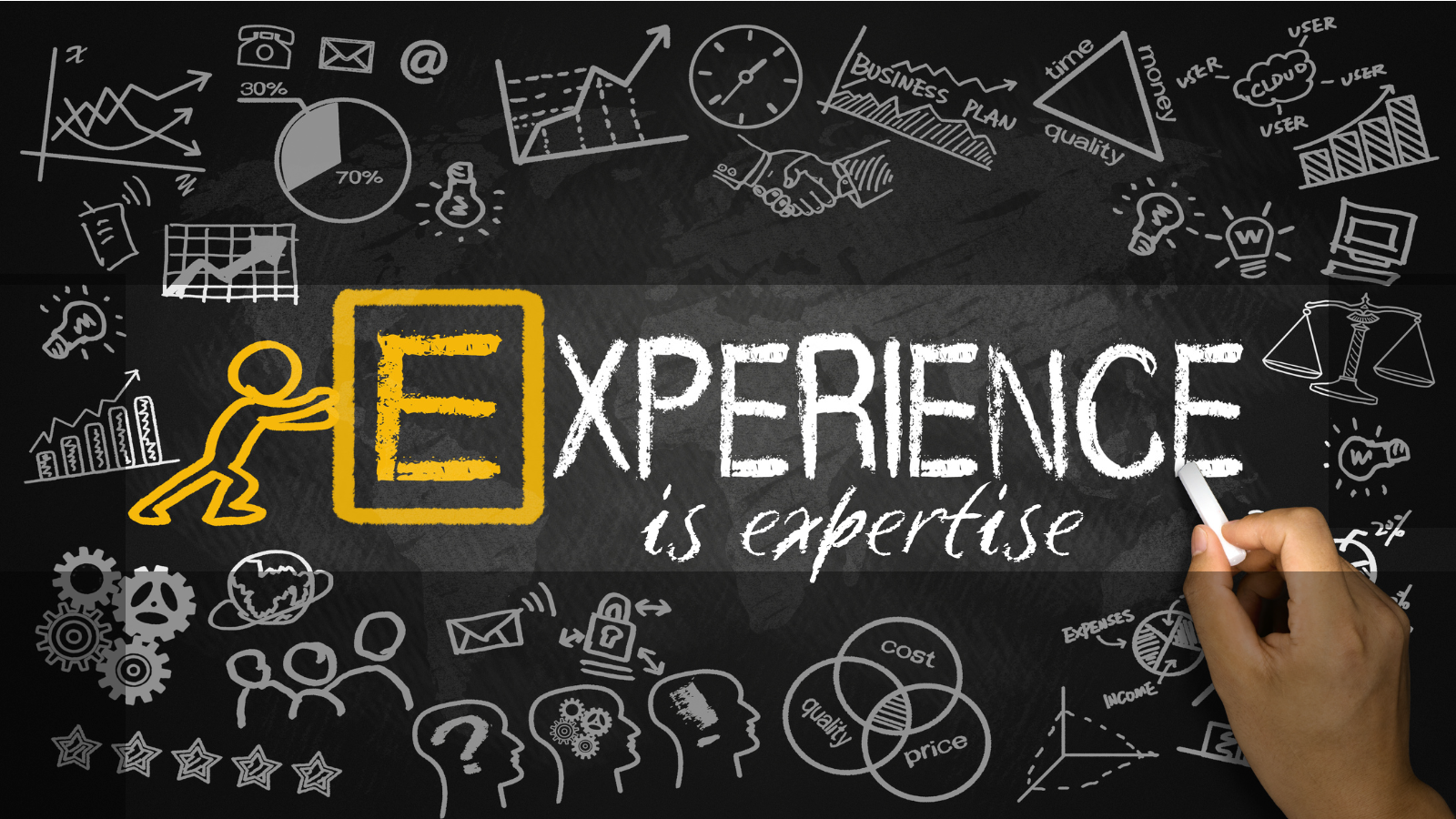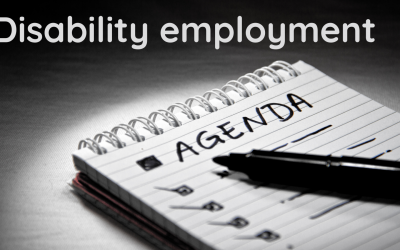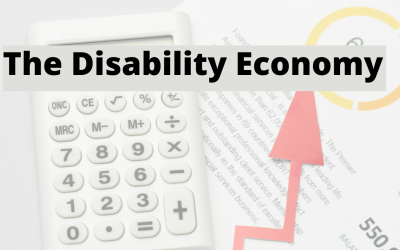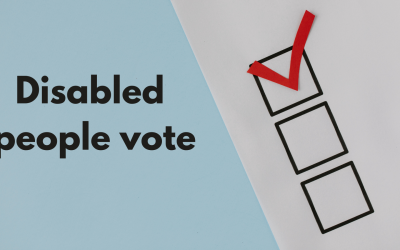The need to include people with lived experience of an issue, such as disability, is becoming standard, but what does this really mean? Are we to be included to talk about only our personal stories, or are we to be included so our expertise in the systems and structures that oppress us is central to the discussion?
I so often see the list – people with lived experience, academics, experts and professionals – for meetings, consultations and conferences. Organisers congratulate themselves for including the actual people they are talking about so they can share personal stories about their lives that the experts can then discuss.
People with lived experience will be included alone, or a ‘lived experience panel’, before the actual experts get to talk about the issue. We may be in the room, but we are on the sidelines, the edges, with no disruption to the status quo.
Those of us with lived experience are shifted over there, while the ‘real’ experts are central to the ‘real’ discussion. We are crowded out by those who purport to have expertise about our lives, our experiences, the barriers we face, with little acknowledgement of the harm this causes. This means the people without any of this expertise can have cover not to examine or look at the space they are taking up, the power they are holding.
I have news for you. Those of us with lived experience are also often the experts, the academics, the professionals. But we are rarely allowed to be both, and to actually sit alongside the so-called experts when it comes to questioning and challenging the barriers we experience.
All this, of course, is about power. For disabled people, we bang on about the importance of being in the room, at the table, leading organisations and discussions about us for very good reasons. Disabled people need to have the power to make changes for our community, to act on the priorities of the people we represent, and to be held accountable by that community.
And yet, so many discussions about disabled people overwhelmingly feature a majority of non-disabled people talking about how they know best for us. Even the majority of our national disability peak organisations are led by non-disabled people. Positioning lived experience as antithetical to actual expertise upholds this false dichotomy and serves only to maintain the existing power structures. People who take up that space, speaking for us, tell us that we can’t possibly develop that expertise.
Tabitha Lean. a Gunditjmara woman, talks about this from her expertise as a criminalised person. She says “We have a right to tell our story. We have a right to have a say in policies that affect us. We have a right to contribute to the local, state and national discourse about the criminal “justice” system, policing and prisons – because we are experts in our own oppression and can bring unique and valuable insights to the table.”
She and Debbie Kilroy from Sisters Inside talk about the extractive nature of conferences and academic work that uses stories of criminalised people without acknowledging their expertise. This upholds who has the power, and takes that power from people who live marginalised lives.
Let me give you some examples. This guide from the Victorian Government sets up government workers and people with lived experience as two separate groups. There is no possibility that people with lived experience could also be government workers.
The COSS network guide goes into significantly more detail about engaging with lived experience advocates, including paying them, but again, doesn’t shift the discussion beyond advocates vs people with lived experience. They can’t conceive that there should be an emphasis on hiring people with lived experience, having them set organisational priorities or truely giving up power. Having people with lived experience of disadvantage and poverty on their staff isn’t in the guide or on the their agenda.
At the recent Jobs Summit, a ‘lived experience’ panel of marginalised people got to talk about their personal experiences, but that was followed by an expert panel that got to talk about solutions. At a homelessness conference in August, where were the actual unhoused people?
Minister Shorten appointed three more disabled people to the NDIA Board, including, finally, a disabled person as the Chair. But yet again, appointed another non-disabled person to the CEO job.
People with psychosocial disability pioneered much of the lived experience workforce, fighting for recognition and valuing of the peer worker which is starting to be realised in the mental health workforce. This is bringing in the tension that was always going to happen – how much of this lived experience expertise needs to be professionalised, and is that expertise valued by workers without lived experience?
I often sit in spaces where I am the only disabled person, or one of the very few. It’s awkward as fuck, and often very uncomfortable. I have considerable professional expertise and yet this is often ignored to tick a ‘disabled person at the table’ box. Recently I was tapped by the national disability advocacy peaks to be on the Federal Government Disability COVID Communications working group because of my professional expertise in communications, and because I am a disabled person. But over and over, my professional expertise was ignored or belittled, and instead I was patronised and talked down to. I have literally planned and run national advertising campaigns, yet my feedback on an ad brief was greeted with condescension and dismissal. I finished that particular meeting in tears.
I left the committee after six months, and it took over six months to get paid for my work there.
There has been no accountability for the failures of the COVID communications to and for disabled people, no accountability from the ad agency for the harm they caused, and no accountability to disabled people for their truly crap communications that have being disastrous for so many of us.
This positioning of lived experience as the opposite of expertise means we are often seen as not equal, and certainly not as important as the so-called professionals. I was once told in a disability advocacy organisation that being a disabled person was a problem because I couldn’t be objective. As though being disabled brought no value to that advocacy. In a disabled peoples’ organisation.
Disabled people in the 1980s and 1990s used the now common phrase ‘Nothing about us, without us’ to signify that disabled people needed to be the ones making decisions about us, at every level. Too many organisations for disabled people were run by non-disabled people, leading to the famous walk out from the Rehabilitation International conference in 1980 in protest, and the formation of Disabled Peoples International.
Many of these fights for disability rights by different groups of disabled people were about this right to decide for ourselves about what happens to us, to be in charge, to be in control. To have control of the levers of power when decisions are made about us.
The current trend for including ‘lived experience’ is a watered down version of this push to be in control. What disabled people had in mind back in the 1980s and 1990s wasn’t token participation, but a wholesale shift of power.
And it certainly wasn’t including people with proximity to us as having ‘lived experience. If you are not disabled, you do not have experience with being disabled.
Including disabled people isn’t because you are nice, or to tick a box. Including us means better decisions will be made because non-disabled people will never understand or know about our lives. But more than that, as long as we are expected to be bystanders, while you, the non-disabled experts, go about the work, there will be no shifts and no changes.
Disabled people, and other marginalised people, are not here for token inclusion because that will never bring us real change for our community. If you are making decisions for marginalised people, and you are not a member of that community, it is time to take a step back. You don’t have the expertise to do the job.
This was published on my Patreon last week. Sign up to read articles.





